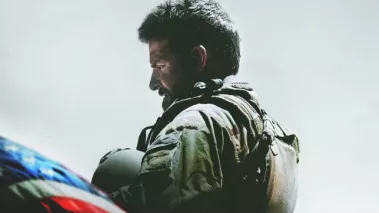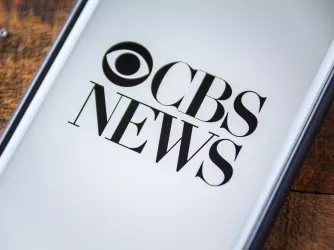Table of Contents
This Time, We’re Failing to Talk About ‘American Sniper’

Every so often, a cultural touchstone descends on college campuses, with the effect of putting campus discourse under the microscope for all to see. The results, frequently, are discouraging. Clint Eastwood’s blockbuster film American Sniper, adapted from deceased Navy sniper Chris Kyle’s memoir, is the latest exhibit.
That American Sniper is a controversial movie is not a controversial observation. It was one of the most remarked-upon movies of last year, and the fevered debate over its portrayals of the war in Iraq, of the Iraqi people (and, by extension, Arabs and the Arab world), and of Kyle himself was difficult to miss. It’s that second concern—the movie’s portrayal of the Arab world—that has proven particularly controversial in recent weeks, and has left several universities flailing in the face of criticism of American Sniper’s allegedly anti-Arab viewpoint.
Given that universities are supposed to be, as the Supreme Court has said, “peculiarly the ‘marketplace of ideas,’” recent press suggests that they have been falling down on the job. This has played out perhaps most embarrassingly at the University of Michigan. American Sniper was scheduled to play there on April 10 as part of UM’s “UMix” series of late-night campus events. This changed after a student petition against the screening gathered more than 300 signatures, claiming the movie “not only tolerates but promotes anti-Muslim and anti-MENA [Middle East and North Africa] rhetoric” and that it was “provocative and unsafe to MENA and Muslim students who are too often reminded of how little the media and world values their lives.” On April 7, UM’s Center for Campus Involvement announced it was pulling the movie, apologizing for “causing harm to members of our community” and further stating: “While our intent was to show a film, the impact of the content was harmful, and made students feel unsafe and unwelcome at our program.” The American Sniper screening would be replaced, they informed people, with a showing of Paddington.
Immediately, however, UM came under fire for the decision, with the cancellation garnering national press and criticism. UM football coach Jim Harbaugh condemned the cancellation in a tweet that quickly went viral, and a new student petition calling for the film screening to be reinstated gathered steam as well. Within 24 hours, UM reversed the cancellation and Vice President for Student Life E. Royster Harper apologized to the community, stating that the cancellation “was not consistent with the high value the University of Michigan places on freedom of expression and our respect for the right of students to make their own choices in such matters.” The Center for Campus Involvement announced that American Sniper would be screened after all, but not as part of UMix and “in a forum that provides an appropriate space for dialogue and reflection.” (Yes, if you’re wondering, the screening of Paddington was kept in the UMix lineup.)
The fiasco at UM was the most prominent controversy over American Sniper, but it was by no means the only one. On April 10, four students were arrested for disrupting a screening of the movie at nearby Eastern Michigan University (EMU). The Eastern Echo reports that a group of protesters took the stage during the screening, interrupting it with their protest. One banner at the protest, with no apparent sense of irony, read, “Is this your idea of dialogue?” As the Echo also reported, Ahmed Abbas, one of the four arrested students (they were all eventually released without charges), framed the issue as one not of free speech but of safety:
“The reality is, this is about a process of not allowing cultural appropriation for the movies being allowed into the university,” Abbas said. “This is not about freedom of speech, this is not about freedom of expression, this is about public safety and people being respected with dignity.”
Though the screening that the protesters interrupted continued, a later screening was postponed, and it appears unclear when, or if, it will be rescheduled.
At Rensselaer Polytechnic Institute (RPI) in New York, a petition effort against screening American Sniper was successful in leading to the movie’s postponement. The student-run Union Programs and Activities Committee announced on April 9 that the movie would be shown at a later date; similarly to the rescheduled screening at UM, RPI’s screening would take place as part of an “educational forum.”
Amidst the cancellations and false starts, some commendation is in order for universities, such as the University of Missouri and University of Mississippi, where pressure to cancel screenings was rejected and the right to peaceful protest was duly respected. They stand out, unfortunately, as brave and principled examples against the creeping issue of what FIRE president Greg Lukianoff termed “the problems of comfort” in his recent book Freedom From Speech. The book detailed students’ increasing demands that their universities keep them not only physically safe, but intellectually comfortable at all times—and the distressing rate at which universities are acceding to such demands. The alleged deprivation of intellectual comfort is being treated as the equivalent of physical danger. We saw this inaction during last year’s “disinvitation season” protests, and we’re seeing it now on campuses wrestling over American Sniper. The petition against screening the movie at UM, for instance, calls the movie “unsafe to MENA and Muslim students.” At EMU, Ahmed Abbas explicitly rejected the argument that freedom of speech was at issue with their interruption of the film, instead couching the protesters’ arguments against its screening in terms of “public safety.”
Among other things, this betrays a serious lack of faith in the agency of college students. Some protesters seem to believe they cannot endure a movie they don’t have to see in the first place, and that American Sniper’s viewers apparently can’t be trusted to judge the movie for themselves. Such a mindset almost begs universities to condescend to their students, and all too often, that’s exactly what they do. Look no further than UM’s decision to replace American Sniper with a screening of the PG-rated Paddington. This substitution didn’t escape Reason’s Nick Gillespie, nor did it escape The Washington Post’s Alyssa Rosenberg, who writes:
If “American Sniper” isn’t an appropriate movie to screen as entertainment for a diverse group of college-aged students, the idea that a PG-rated movie about a sentient bear ought to be the standard seems an over-correction in the opposite direction. “American Sniper” might offend some students’ sensibilities, but suggesting “Paddington” as age-appropriate entertainment for college students carries its own whiff of condescension about students’ capacities to be entertained and riled up all at the same time.
And while it’s good that screenings of American Sniper are back on the table, we shouldn’t feel good about the sense that such occasions need to be stage-managed and curated for the maximum possible hand-holding of students. The idea that violent and difficult films like American Sniper can be shown to college students only in controlled environments presumes that students are owed an apology or consolation should they have to encounter anything emotionally difficult. If college students aren’t insulted by this, they should be.
This “problem of comfort” isn’t just detrimental to student development. It’s also utterly destructive to free speech and academic freedom, chilling those who might be inclined to express controversial opinions or explore controversial disciplines, either for fear of being investigated and punished or because they just don’t want to put up with what they see as unnecessary hassle. As Nick Gillespie worries, “At a certain point, these predictable and preventable cycles wear down even the most stalwart of defenders of open discourse and expression, giving way to exhaustion.” This damaging way of thinking has ramifications inside and outside the classroom. It’s why many tenured professors rightly fear they will face punishment or worse for their choice of course materials. It’s why comedians like Chris Rock have stopped performing at colleges. And it’s why, when the next American Sniper-type controversy comes to campus, students may not be equipped to handle it any better than the current one.
Recent Articles
FIRE’s award-winning Newsdesk covers the free speech news you need to stay informed.

The FCC's show trial against CBS is a political power play

UPDATE: Another federal appeals court backs academic free speech for public employees

Feds to Columbia: ‘You want $400 million in contracts back? Do this (or else)’
